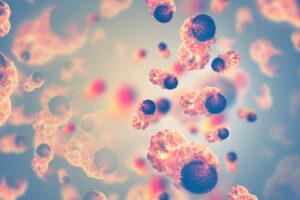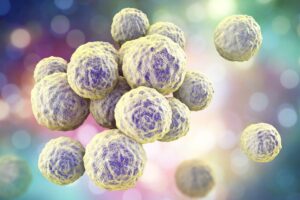Gastroenterology
Gastroenterology
The type of microbiome that repopulates the gut after antibiotics has the potential to reprogram the mammalian immune system with long-lasting effects including on longevity. A new study published in…
Gastroenterology, Oncology
Chemotherapy treatment and intestinal diseases can alter the process of programmed cell death, which can lead to gastrointestinal tract's infections.
Gastroenterology
The ability to transfer resistance to infection suggests that the microbiota could be harnessed for therapeutic treatments. A new study published in Cell Reports claims.
Gastroenterology
A study published in Nature Medicine claims that the manipulation of the gut microbiota could be a new strategy to treat toxicity to combined immunotherapy.
Gastroenterology
Fecal microbiota transplants combined with daily fiber supplement improves insulin sensitivity in obese individuals with metabolic syndrome.
Gastroenterology
A new study published in Cell Host & Microbe illustrates how different dispersal strategies can allow bacteria to persist in the human gut.
Gastroenterology, Nutrition
A high-fat diet is associated with changes in the gut microbiota and microbial metabolites. These changes seem impair antibiotic efficacy.
Gastroenterology
A new study published in Cell could help to detect infection outbreaks and study the distribution of antibiotic-resistant microbes in different urban areas.
Gastroenterology
Specific food dyes are environmental risk factors for colitis development in conditions where IL-23 expression is dysregulated.
Gastroenterology, Immunology
A new study published in Cell Host & Microbe could pave the way for using phages as biomarkers for the condition of rheumatoid arthritis.











